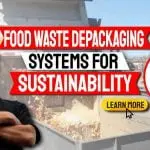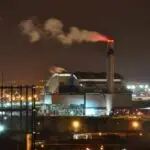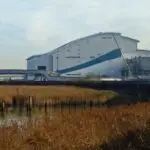The most significant challenge facing the management of Municipal Solid Waste is how to divert the biodegradable component of MSW (known as BMW)away from landfills.

Measures have been set in place in the Waste Management Regulations (see below) to reduce the amount of this biodegradable material allowed to be sent for disposal in landfills. What is BMW? Biodegradable Municipal Waste (BMW) is the fraction that will break down, either in the presence of air or under anaerobic conditions (such as that within a landfill, where oxygen is absent).
The types of materials that comprise this Biodegradable Municipal Waste include: kitchen wastes, green or garden wastes, paper, card, cork, and even some textiles. The materials that comprise BMW also include garden waste, kitchen waste, general household sweepings,soil, paper/board, wood, textiles. Why seek alternatives to landfill?
The EC Landfill Directive is the legislation driving the need to divert BMW from landfill. The various EU governments each issued their own national Waste Regulations, in response to the European Commission (EC) Landfill Directive published in 1999.
The rationale for the need to reduce the levels of biodegradable materials going to landfill is based on concerns over greenhouse gas emissions and the threat of global warming. The decomposition of biodegradable materials within landfill sites results in the production and escape of methane. Methane is a potent greenhouse gas, emissions of which have to be reduced.
The EU Landfill Directive is one measure designed to reduce the quantities of methane produced from landfills by targeting a reduction in the quantities of BMW disposed of in this way.
Within the Landfill Directive the following targets have been set: BMW levels allowed to landfill* are as follows:- 75% of 1995 quantities:Target year for UK 2010 50% of 1995 quantities:Target year for UK 2013 35% of 1995 quantities:Target year for UK 2020.
This change is a “waste revolution”, and will cost billions of pounds of investment to achieve. Source: “Waste Not, Want Not” 2002 report. * The target years highlighted includes the 4 year derogation open to the UK and other a Member States who were landfilling more than 80% of its MSW in 1995.
Municipal Solid Waste (MSW) is waste collected by or on behalf of the local authority. It comprises mostly household waste and it may include some commercial and industrial wastes.
The quantity of Municipal Solid Waste is currently increasing year on year, and is a growing problem for local authorities particularly as new legislation which limits the amount of mixed MSW that can be sent to landfill comes into effect.
At present more than 75% of all MSW generated in England is disposed of in landfills. The aim of this guide is to introduce alternative options for the management of MSW which do not rely solely on landfill.
Some of these options are already established practice in the UK or overseas. Others are yet to be commercially tested in the UK for municipal waste management.
You May Also Like These Topics...
In this article, we provide a roundup of flare stack suppliers, the stacks they produce and developments in the flare stack market, with an emphasis on the landfill gas, and biogas flare stack market. These are mostly enclosed flares for methane emission reduction and use during Energy from Waste plant downtime. On This Page Flare […]
Food Waste Depackaging systems are increasingly being designed for sustainability and microplastic reduction which many would say is vital for the survival of our planet. Many people are interested in the rapidly growing anaerobic digestion sector, which uses mechanical equipment called depackagers or separators, to produce contaminant-free food waste slurries that may be piped into […]
Making Energy from Waste by incineration should not still be accused of being a significant threat to the health of nearby residents. We wish to explain why a modern incinerator is not a health risk. Concerns about pollution and particularly the discharge of trace amounts of dangerous substances into the area around an incinerator are […]
Waste Incineration Plants (also known as WtE facilities) should not be installed as a replacement for material recycling. WtE is designed to complement recycling programs because not all waste is feasible to recycle. Incineration is an engineering process that uses thermal decomposition in a highly oxidative environment to decompose organic molecules into simple compounds, predominantly […]
 Measures have been set in place in the Waste Management Regulations (see below) to reduce the amount of this biodegradable material allowed to be sent for disposal in landfills. What is BMW? Biodegradable Municipal Waste (BMW) is the fraction that will break down, either in the presence of air or under anaerobic conditions (such as that within a landfill, where oxygen is absent).
Measures have been set in place in the Waste Management Regulations (see below) to reduce the amount of this biodegradable material allowed to be sent for disposal in landfills. What is BMW? Biodegradable Municipal Waste (BMW) is the fraction that will break down, either in the presence of air or under anaerobic conditions (such as that within a landfill, where oxygen is absent).



